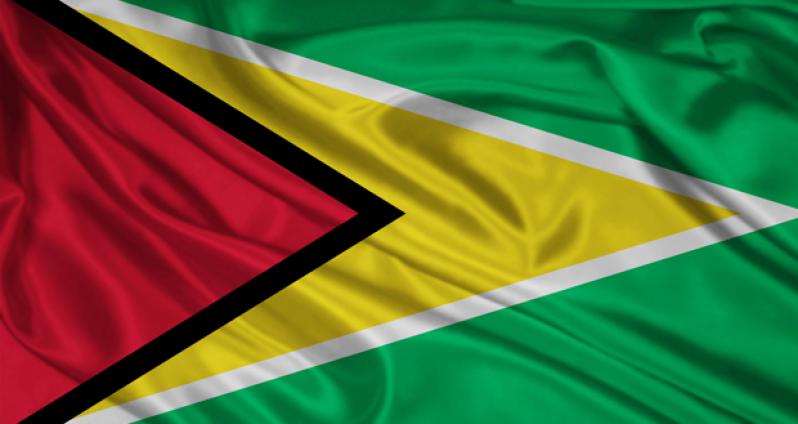By Dr. Prem Misir
Those hungry for political power and especially with the least chance of reaching the finishing line generally show their true colours at election times. These are the fear mongers and those who live off politics who conveniently feed on the blood of the race card to give them the opening to talk about constitutional reform, power sharing, common culture, national unity, etc.
Indeed, these ‘also ran’ politicians who team up with particular media houses as the new opposition, believe that the PPP/C Government does harm to democracy because of its failure to address a diversity of race and ethnic differences, religious differences, ideological differences, class cleavages, among others.
In fact, if this diversity creates divisions among citizens, then democracy will not work; so these politicians apparently believe this diversity has to be managed; and that the PPP/C Government is unable to manage this diversity to bring forth a situation where citizens have something in common.
“Those hungry for political power and especially with the least chance of reaching the finishing line generally show their true colours at election times. These are the fear mongers and those who live off politics who conveniently feed on the blood of the race card to give them the opening to talk about constitutional reform, power sharing, common culture, national unity, etc.”
But what attracts citizens to obtaining something that is common? There is the view that democracy could only work if citizens have something in common because they believe that it is essential to fulfill three requirements of democracy: the requirement that citizens have a well-defined identity; the requirement that citizens have an affective connection to each other; and the requirement that citizens see the will of other citizens as their own (1). On the other hand, when some political philosophers and theorists show sympathy for becoming accustomed to diversity, they end up throwing their weight behind attitudes and behaviours unsympathetic to diversity (2).
However, this view is based on an the assumption that citizens in a nation state should have something in common, in order for democracy to be stable and sustainable; there are disagreements about what things citizens should have in common as, shared ethnicity, centralised institutions, and common culture which are unfairly opposed to diversity; when this happens, theorists do no not throw away this commonality, they actually change it in a way that it becomes an unquestionable fact which is in sync with democracy; nevertheless, there is general agreement that citizens should have something in common; and this position is usually assumed to be true, but not investigated to verify if it is true (1).
In the Guyana situation, the belief that citizens have to experience something in common, in order for democracy to work, is rampant. And so, fear-mongering politicians gladly embrace something in common like national unity and common culture as a slogan for electioneering purposes and present this slogan as an unquestionable fact. But there are people in Guyana who question whether common culture and national unity are not really abstract terms, which do not fully mobilise all the ethnic cultures into a whole, and even whether the attempt to consolidate cultures into a unified format would not result in cultural loss for some ethnic groups.
With reference to these questions then, the result is to exclude those who do not accept national unity and common culture as an unquestionable fact. For these people, therefore, this outcome is exclusion, and democracy is not about exclusion; and so that is why a democracy does not require citizens to have something in common before it works because that commonality can lead to exclusion. Under these circumstances where citizens become excluded, the fear-mongering politicians are on thin ice, for their sloganeering national unity and common culture stance of enabling citizens to have something in common, can hurt democracy.
The common culture and national unity claim of enabling citizens to have something in common should be perceived as a political claim instead of an unquestionable fact or neutral observation on Guyana; as a political claim, there would be the need to seek out others’ agreement, try to convince others, and try to influence the approach others use to view the world; following this path would result in sharing democracy (2); it is hard to do that with an unquestionable fact.
The ‘also ran’ and fear-mongering politicians use the common culture and national unity stance as an unquestionable fact and not as a political claim. But the many questions on the common culture and national unity claim make this claim questionable.
Therefore, the usual resurgence of interest at election time in constitutional reform, power sharing, common culture, national unity, among others, must have claims that are not unquestionable. In fact, “…Such claims seek the agreement of others, seek to persuade others, and seek to shape the way others see the world that we share inter-subjectively” (p. 51) (1); and not to present proposals toward developing an environment where citizens have something in common, which is popular but hurts democracy.
As Guyana enters the threshold of another general and regional election, albeit a possible premature election, the fear-mongering politicians and the usual petty politicians parading as journalists, that is, some newspaper writers who deem themselves as journalists just because they write for newspapers are out in full force to degrade the democratic growth of this country.
References:
1. Ferguson ML. Sharing Democracy: Oxford University Press; 2012.
2. Laden AS. Sharing Democracy. Contemporary Political Theory. 2014;13(3):e8-e10.




.png)









